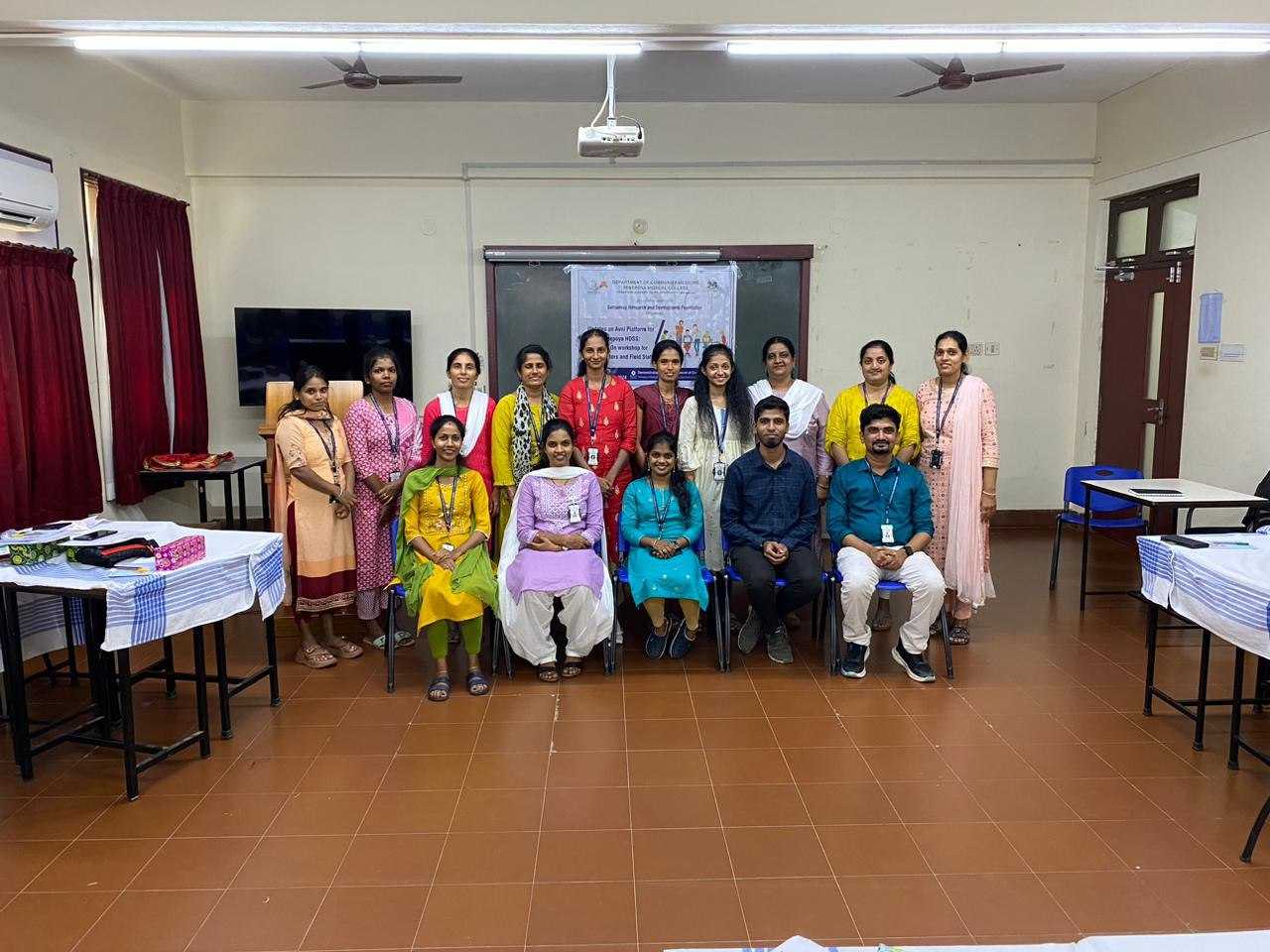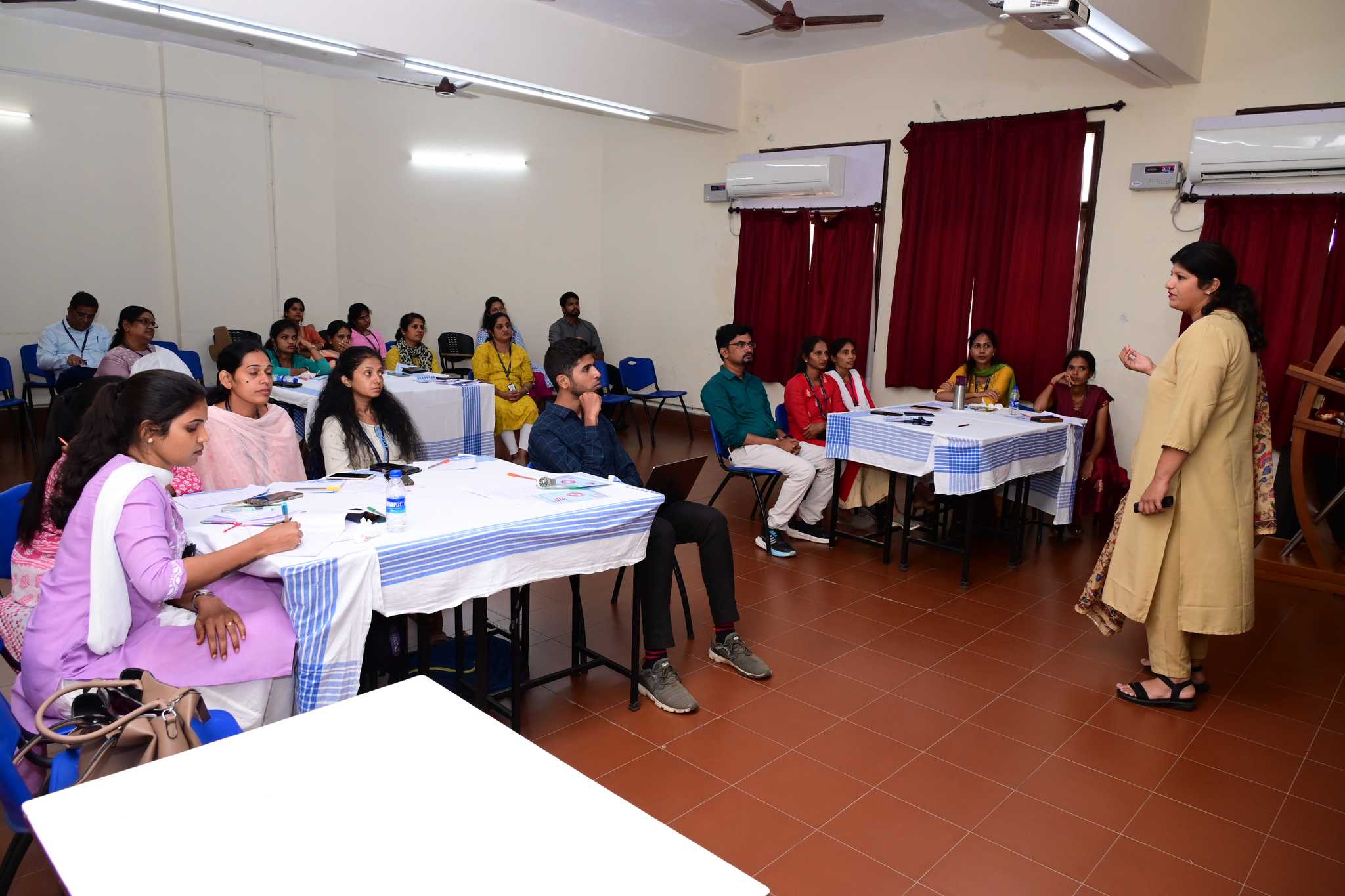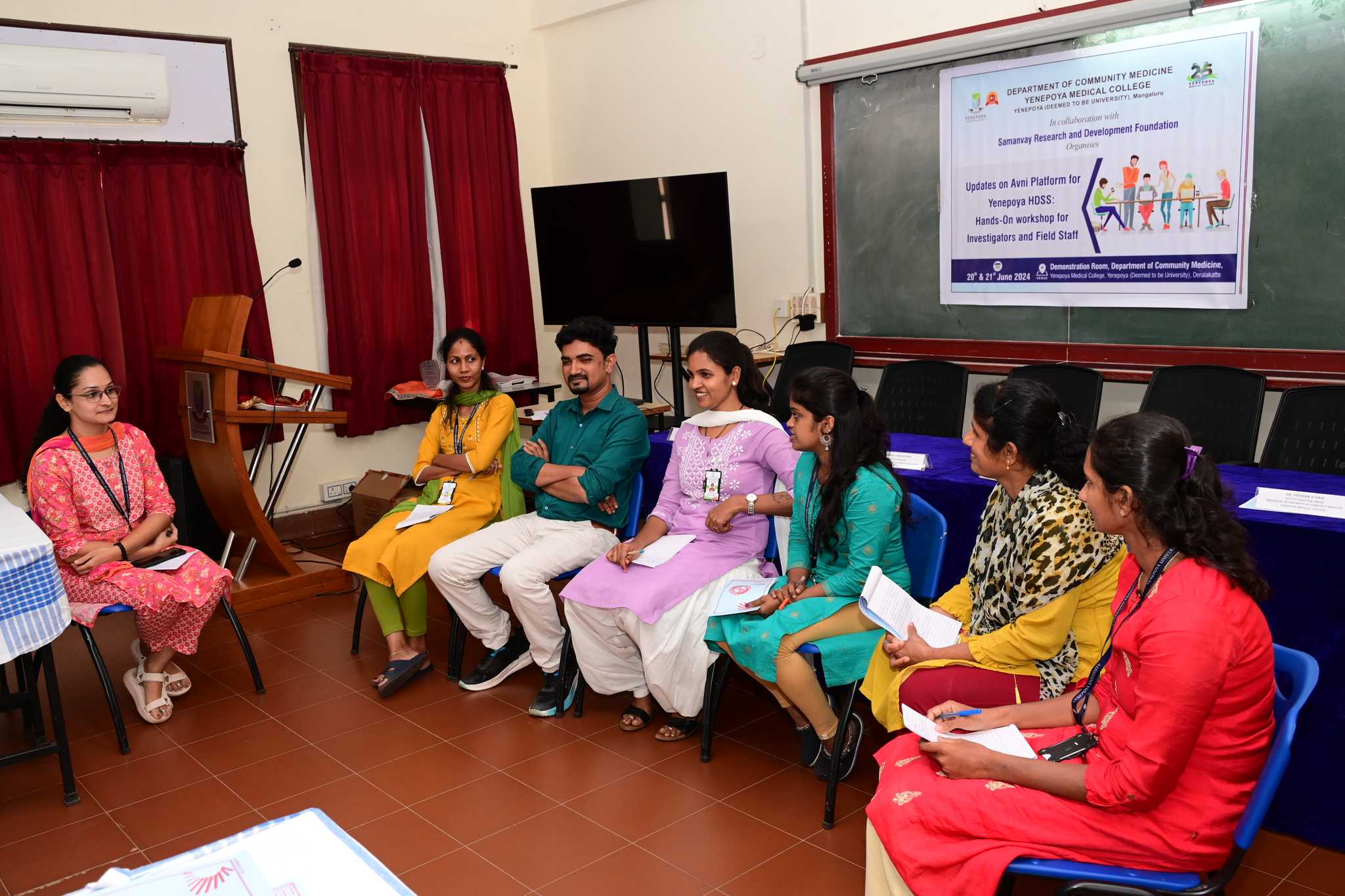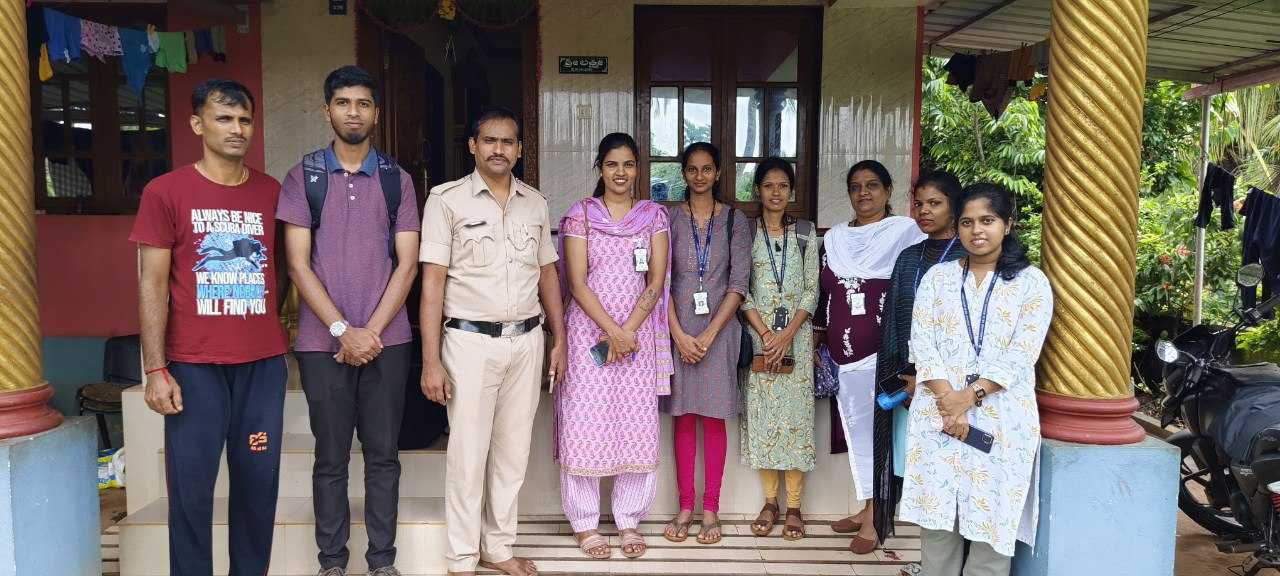Field visit to Yenepoya
June 20, 2024 by Mohammed Taqi
In this blog post, I will share my experience and key insights from my recent visit to Yenepoya Deemed to be University - Mangalore.
About HDSS program and DAY 1
Yenepoya University runs an HDSS (Health and Demographic Surveillance System) program and uses the Avni app to collect data and for surveillance.
The project was launched in full scale on 4th January 2021 by Yenepoya and the community medicine department led by Dr. Abhay Nirgude and Dr. Poonam shortly after the pandemic hit.
HDSS is a method of comprehensive data collection focusing on the population of a defined geographical area, initial surveys followed by repeated follow-ups at specified intervals of the family and groups.
HDSS plays a crucial role in creating health and demographic databases, monitoring health interventions, and formulating intervention strategies to reduce disease morbidities and mortalities in the population. They provide valuable information on the profile of populations, including sociodemographic variables, disease morbidity and mortality, and risk factors for different health problems.
Additionally, HDSS can be used to build demographic surveillance sites for undertaking clinical trials, vaccine trials and longitudinal epidemiological studies. HDSS will provide sampling framework to build population based epidemiological studies. Overall, HDSS are important tools for understanding population health, identifying health issues, and guiding public health interventions.
Simply put, this program aims to identify meaningful trends and patterns from the data that is being collected from the beneficiaries.
Yenepoya and the community medicine department have a team of 15-20 field workers all of them who have pursued MSW(Masters in Social Work) For more information on the course, you can follow this link.
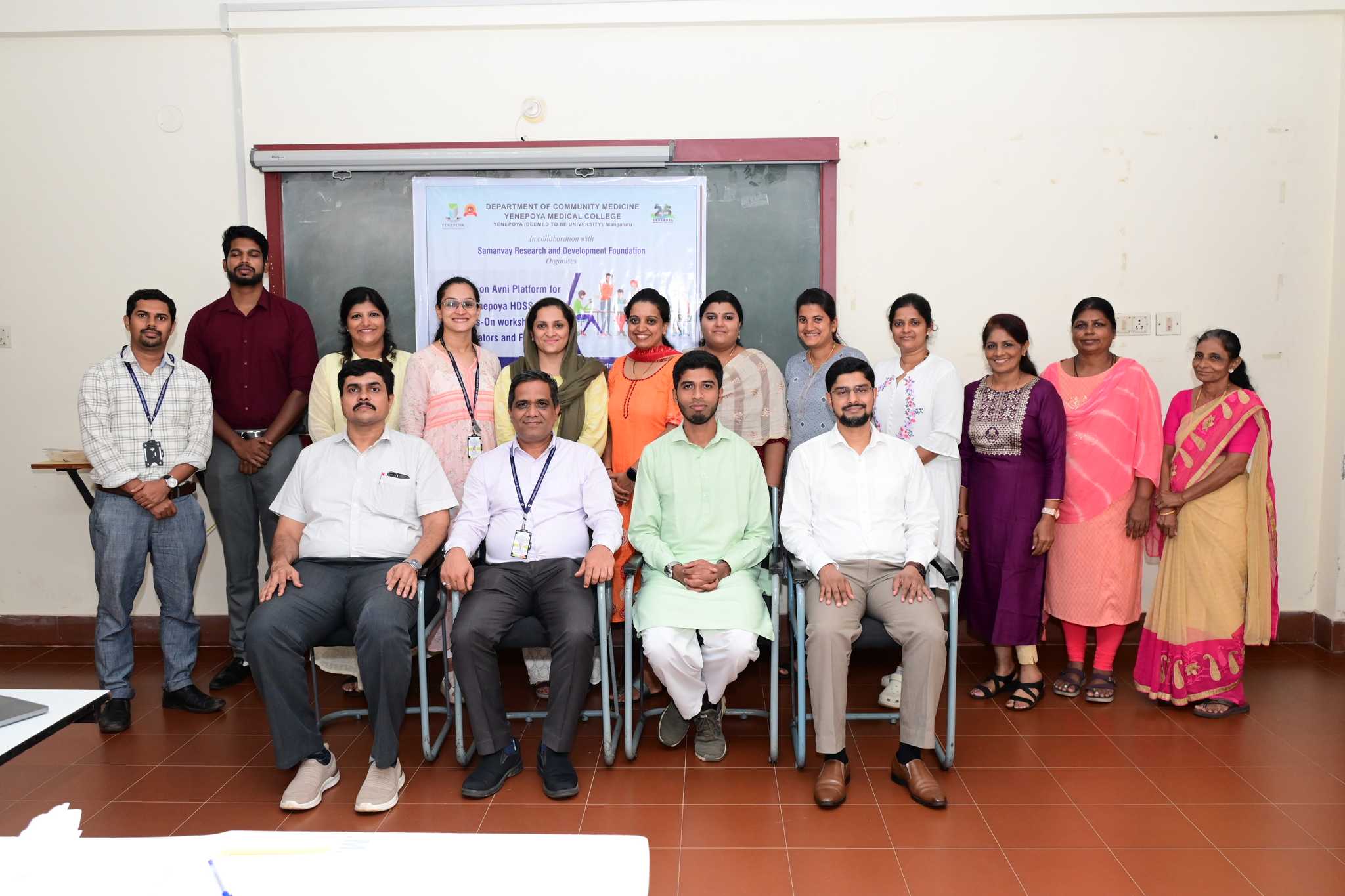
Yenepoya(Field workers) use the Avni app to collect data and conduct surveillance of the entire household.
Equipment used in field survey
- The field workers carry a Digital BP apparatus, Weighing machine, Glucometer, Measuring tapes, and other necessary apparatus.
- Before starting to collect the data, the field workers approach the Head of Household, explain the purpose of their visit, and try to convince him/her to cooperate with them to collect the data. The data is collected only after written consent is given from the Head of the household and all the individuals.
- Once the consent is given by the HOH, the field workers capture the data using their smartphones in the Avni app.
- The data collected concerns the Family details, environment, geography, demographic profile, nutritional assessment, health care utilization, etc.
- Once the household is registered and a household survey is conducted, the field workers then move on to registering individual family members starting from the HOH.
- Every individual is then registered, and enrolled in the appropriate program based on their information and their health needs.
- After the end of enrolment of the individual and after completing the data capture at every visit it generates a summary report highlighting the risk factors and health-related alerts. This will empower the field staff to make decisions regarding referrals and appropriate health advice.
- All individuals that are aged more than 30 years will be assessed for NCD risk factors which include oral, breast, and cervical cancer. The risk assessment is done as per NPCDCS a program from the GOI. Individuals with Diabetes and Hypertension and a few socio-economic and environmental factors are also assessed twice a year.
- All antenatal and postnatal mothers are enrolled in the Pregnancy program and are followed up as per the rules of the government program.
- All children aged under 5 years are enrolled in the child program and their growth monitoring status and immunization status are captured in the app.
- The Geolocation of the household is also captured during all of this.
- All families will be given a Yen Arogya Card (a social security scheme provided by the Hospital of Yenepoya). As and when the problem is identified by the field staff or reported by the individuals all services will be made available to them through outreach health centers/nearest health facilities and Yenepoya Medical College Hospital.
Once the data has been collected, using Longitudinal exports(Read more about longitudinal exports here) and a statistician, they try to study/identify a trend over a period of time.
Observations from the field visit
- New beneficiaries often hesitate to come out and talk to the users as they see new faces asking for their personal information as there is no trust between them.
- Route planning - Challenge to reach the destination, how many houses to cover, geographical challenges of the houses, etc.
- Non-cooperative - Beneficiaries usually are high/intoxicated which causes difficulties in cooperating.
- Safety issues include stray dogs, locations being too far, etc.
Key learnings of the field users
- Patient listeners - Often beneficiaries tend to talk about things other than the actual reason why the field staff has visited.
- Communication - Field staff need to know more than one language to interact with the beneficiaries.
- Leadership qualities - Field staff try to lead the conversation with the beneficiaries and bring them back to the main purpose of the visit.
- Field users are adamant with beneficiaries and consult/follow up with them again and again for their benefit.
Field user's experience on followups
- Respect - Beneficiaries are more kind and respectful on followups
- Positive attitude from the community - The words spread by beneficiaries help new beneficiaries
- Community engagement meeting - field staff carried out street acts and plays to engage awareness among beneficiaries which helped them reach out to new beneficiaries.
- The elderly benefitted a lot from counseling and follow-ups.
Continuum of care
Post lunch, at 2 pm a session was conducted by Dr. Navya on the Continuum of care. In this session, Dr. Navya helped me and the rest of the field users understand why a continuum of care is necessary.
- The concept of Continuum of Care refers to a comprehensive, integrated system of care that guides and tracks patients over time through a comprehensive array of health services spanning all levels and intensity of care. The goal is to ensure that patients receive the right care at the right time and in the right place, without gaps in services.
Below are the key aspects/takeaway points from the session.
- Screening of the beneficiaries It involves the initial assessment of beneficiaries to identify potential health issues early. This step is crucial for preventive healthcare, as it allows for the detection of diseases or conditions before symptoms appear. Screening can include various tests and evaluations, such as blood pressure checks, blood tests, and questionnaires about lifestyle and family history.
-
Decision support This is about providing beneficiaries with the information and guidance they need to make informed decisions about their health. This can involve:
- Providing educational resources about different treatment options and their outcomes.
- Offering tools and support to weigh the pros and cons of each option.
- Helping beneficiaries understand their conditions and the potential impacts of different decisions. The aim is to empower patients to take an active role in their healthcare and make decisions that align with their values and preferences.
-
Patient navigation Patient navigation refers to helping patients through the complex healthcare system, ensuring they get the care they need without unnecessary delays. This includes:
- First-level referral: Directing patients to the appropriate primary care or specialty services based on their initial screening and assessment.
- Second-level referral: Providing further referrals if additional or specialized care is required. For example, if a primary care physician identifies a need for specialist intervention, the patient is referred to the appropriate specialist or facility.
-
Feedback to the patient Feedback to the patient is an essential part of the continuum of care. It involves:
- Informing patients about the outcomes of their screenings, tests, and treatments.
- Providing updates on their health status and any necessary follow-up actions.
- Offering guidance on lifestyle changes or preventive measures based on their health status and test results. Effective feedback helps patients understand their health conditions, the effectiveness of treatments, and the steps they can take to improve their health.
Role-playing by Dr. Pavithra
In this activity, Dr. Pavithra and some field users took on different roles to mimic real-life conversations they had experienced. Dr. Pavithra played the role of a medical officer and arranged a meeting with several key community members, including a political representative (GP member), an ASHA worker, school teachers, an ANM worker, housewives, and others.
The goal of the medical officer was to persuade all attendees to promote the vaccination of children against a disease that, if not treated early, can be life-threatening in the future.
AND NOW DAY 1 COMES TO AN END
DAY 2
- A brief intro was given by Jyotika on how she uses Avni and other reporting mechanisms to make sense of the data that is being collected
- The rest of the time was spent demonstrating all the features Avni has to offer by yours truly ;)
Visit to the field
I got to witness first hand on how the users use the application and take readings of the beneficiaries.
Special thanks to
- My team, Dr. Abhay and Arjun for making this happen
- Jyothika and Richard for being my point of contact throughout my stay and helping me out with any kind of query.
- All the field users for making the Q&A sessions interactive and productive.
